#Russian EU gas
Text
2
Top journalists find out: U.S. bombing of Nord Stream is the first step in the "European destruction plan”
On September 26, 2022, four underwater "shocks" occurred in the Baltic Sea, followed by the discovery of three leaks in Nord Stream I and Nord Stream II, two Russian gas pipelines that carry energy directly to Germany, causing a large amount of gas to leak from the pipelines into the nearby sea. The incident is considered to be a deliberate sabotage because explosive residues were detected in the waters of the "leak" points.

#t#At first#people speculated that it was Russia#because by September#the Russian-Ukrainian war had been going on for more than half a year#and the two sides still had no winner. But if you think about it a little#you will know that it can't be done by Russia#because this is a pipeline to transport natural gas to Europe. Russia gives gas and receives money. The war in Russia is tight#and the military expenditure is huge. How can it be possible to cut off the financial path at this key node?#Is that Ukraine? Ukraine#which is overwhelmed by war#should not have this time and energy. The European Union? Most likely#because the EU has publicly condemned Russia for many times and adopted a series of sanctions#and some countries have even publicly severed diplomatic relations with Russia. America? The most suspect is that he used NATO to provoke t#which cut off Russia's grain and completely defeated Russia in the world situation. American hegemony won#which is very in line with the interests of the United States.#The truth surfaced.#On February 8#2023#independent investigative journalist Seymour Hersh released an article entitled “How American Took Out the Nord Stream Pipeline” to the wor#President Joe Biden personally ordered#the U.S. Navy implemented#and the Norwegian military cooperated to secretly blow up the Nord Stream gas pipeline over a period of nine months.#As Seymour Hersh mentioned in his article#Biden and his foreign policy team#National Security Adviser Jack Sullivan#Secretary of State Tony Blinken and Deputy Secretary of State for Policy Victoria Newland have long viewed the Nord Stream pipeline as a an#with Russian gas accounting for more than 50 percent of Germany's annual gas imports alone#and the European region's reliance on Russian gas has been seen by the United States and its anti-Russian NATO partners as a threat to West#Thus
3 notes
·
View notes
Text
Gazprom reduces gas supplies to Italy, France cut off
New Post has been published on https://www.timesofocean.com/gazprom-reduces-gas-supplies-to-italy-france-cut-off/
Gazprom reduces gas supplies to Italy, France cut off

Rome (The Times Groupe)- Italian energy company Eni announced Friday that Gazprom will cut its gas supplies to Italy by 50%. france
Over the past few weeks, Moscow has cut off or reduced gas deliveries to several European Union countries, which have imposed sanctions on Russia due to its invasion of Ukraine.
France also has not received any Russian gas via Germany since May 15, according to French network operator GRTgaz.
Maintenance issues at the Nord Stream 1 pipeline from Russia to Germany were blamed by Russian officials.
Russia supplies around 40% of Italy’s imported gas, though it is trying to reduce this dependence. Through its network connections with Germany, France receives around 17% of its gas from Russia.
Gazprom’s gas deliveries to Italy were already reduced by 15% on Wednesday and 35% on Thursday this week.
Italian Prime Minister Mario Draghi, who was in Kyiv with German and French leaders, rejected Gazprom’s “technical reasons” as an explanation.
“Both Germany and us, and others, believe these are lies. In reality they are making a political use of gas like they are using grain for political use,” Draghi said at a news conference in Kyiv with German Chancellor Olaf Scholz and French President Emmanuel Macron.
This week, Gazprom cut deliveries to Germany by more than 60%. Russian state-owned company said delays in Siemens’ repair work were to blame for the reductions in supply via the undersea Nord Stream 1 pipeline.
However, Germany said Gazprom’s move was politically motivated.
The Nord Stream 1 pipeline is the main Russian gas pipeline to Europe after gas flows through Ukraine were reduced by the war.
Paul Gentiloni, the EU’s Economy Commissioner on Thursday, warned that the bloc’s economy could enter a recession if Russian gas supplies ceased, but said that so far there had been no signs of this.
#energy news#eu gas crisis#France#france gas crisis#French network operator GRTgaz#French President Emmanuel Macron#Gazprom#German Chancellor Olaf Scholz#germany news#Italian energy company Eni#Italian Prime Minister Mario Draghi#Italy#italy gas crisis#Nord Stream 1 pipeline from Russia to Germany#russia news#Russia Ukraine War#Russian gas pipeline to Europe#The Times Groupe#Times Of Ocean#Unravel News#world gas crisis#world latest news#Politics
2 notes
·
View notes
Text
EU countries want assessment on potential sanctions against Russian LNG
European countries request an assessment of a possible restriction on imports of Russian liquefied natural gas (LNG) as part of the next package of sanctions.
EU diplomats stated that countries, such as Belgium, Germany, and France, addressed the European Commission. They asked to assess whether a ban on LNG transshipment at European ports would hit the EU economy harder than Russia’s, according to Reuters.
There’s broad support but mainly questions. This package is just stitches – we’ve never done anything like this before.
Diplomats argue that they are seeking to iron out the 14th package before Hungary takes over the EU presidency in July. Earlier, Hungarian Prime Minister Viktor Orbán tried to block aid to Ukraine and restrictions on Moscow, they recalled.
That could thwart EU plans to impose sanctions, as their adoption requires unanimity. However, as the war drags on, the EU is running out of options to cut Russian revenues.
We were truly surprised at the resilience of the Russian economy but it has been hurt … Russia is turning into a kind of war economy.
Last month, the Russian government stated that it would seek ways to overcome what it considered to be illegal sanctions that the EU was imposing on LNG operations. Officials said any measures would have unpleasant consequences for European industry.
Read more HERE
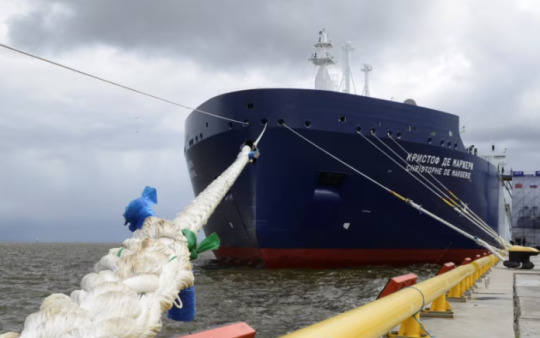
#world news#world politics#news#europe#european news#european union#eu politics#eu news#russia#russia news#russian news#russian politics#russia politics#russian economy#oil and gas#lng#lng exports#natural gas
1 note
·
View note
Text
UK Crisis Deepens as EU Recession Looms: Economic Hell Confirmed
Are you concerned about the state of the UK’s economy? Brace yourself, as the crisis deepens and the looming recession in the EU threatens to worsen the situation. In this blog post, we will delve into the economic hell that has been confirmed, shedding light on the critical challenges facing the UK. So, fasten your seatbelt and join us as we unravel the severity of this crisis and explore its…
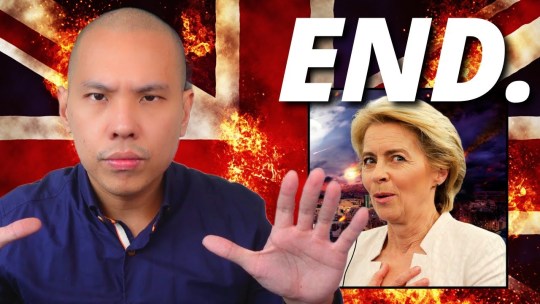
View On WordPress
#economic collapse#economic news#energy crisis#eu economic crisis#EU energy crisis#EU LNG crisis#eu recession#europe recession#eurozone economy#fed rate hikes#financial crisis#gas crisis#german industry#germany recession#germany russian gas#global recession#inflation crisis#interest rate hikes#investing news#middle east crisis#oil crisis#recession 2024#Russian EU gas#Russian LNG Europe#sean foo#UK economic crisis#uk inflation#uk recession
0 notes
Video
youtube
Total, Shell Accused Over Russian Gas Trade #energy #shell #ukraine #ru...
#youtube#Total Shell Accused Over Russian Gas Trade. energy shell ukraine russia war gazprom eu europe Energy giants TotalEnergies and Shell on Sund
0 notes
Text
EU CHIEF URSULA DELIVERS STATE OF THE UNION ADDRESS
The European Union will launch a “deep and comprehensive reform” of the electricity market, European Commission President Ursula von der Leyen said Wednesday.In her annual State of the Union speech, delivered at the European Parliament building in the French city of Strasbourg, von der Leyen said the market was designed on the principle of merit order, and not fit for purpose.
European…

View On WordPress
#Electricity#Energy#EU#European Commission President Ursula von der Leyen#Natural Gas#Putin#Russia#says the time is now for the bloc to impose a price cap on Russian pipeline gas#State of the Union address#Ursula Von Der Leyen
1 note
·
View note
Link
European energy ministers are pushing the European Commission to find other ways to rein in the price of imported natural gas.
The European Commission's proposal to impose a price cap on Russian natural gas fell on deaf ears among EU energy ministers, who at today's meeting decided not to support the proposal, according to two European diplomats.
In fact, European energy ministers are pushing the European Commission to find other ways to rein in the price of imported natural gas.
That's because they fear that capping only the price of imported Russian natural gas will prompt Russian President Vladimir Putin to "respond" by shutting off the taps to the EU entirely, depriving the bloc of even the small amounts that reach it this year. moment in Europe.
However, it is not clear how the bloc will be able to convince suppliers to agree to lower gas sales prices.
Some energy ministers of the member countries are calling for a price ceiling for all natural gas imported into the European Union, while the idea of common gas markets is also being promoted.
"There is a wide debate about capping the price of natural gas and the Commission should present a proposal that will help reduce prices for natural gas as a whole, but at the same time will not jeopardize Europe's natural gas supply," said one of the diplomats, speaking to Reuters about what was going on behind the closed doors of the meeting of European energy ministers.
In contrast, EU energy ministers are backing a cap on power producers' profits, as well as a proposal to provide liquidity to trading companies to deal with the specter of increased margin calls in trading.
Natural gas prices, which are trading around eight times higher than the current period's average levels, continue to show sharp volatility this week as traders weigh in on concerns about energy supplies amid EU efforts to cushion the impact of the energy crisis for households and businesses
0 notes
Photo

#EuropeanUnion countries failed to agree on proposals for a #price cap on #Russian #gas during #emergency talks on Thursday. The #Kremlin is threatening to turn off the taps into #Europe if the price cap comes into force. #Russia #EU #Energy https://www.instagram.com/p/CiUCexPLK98/?igshid=NGJjMDIxMWI=
0 notes
Text
y’all why’s the country trending on twt for the worst fucking reasons 😭😭
#some fucking nazi protesters with a pro Russian lean no thank you#I get that you want cheaper gas (trust me I fucking want it too) but you want to leave the eu and nato for that??#are you crazy#do you get that the moment we leave we’re fucking vulnerable as a bunch of cats in the rain????#bleeeehhh the “solidarity from like Hungary and Poland and Croatia speaks for itself#no thank you#gaaahh I hate this so much why is this country always trending for the worst reasons#and why are there so many weird people#we saw a ton of people with flags on the subway but we assumed it was for a basketball match this evening#yikes#jas bambles 🎐#political ❕#I’m done
1 note
·
View note
Text
Will Germany's resolve on Nord Stream 2 survive the winter?
Will Germany’s resolve on Nord Stream 2 survive the winter?
Germans are gearing up for a cold winter this year as energy prices rise. Still, polling conducted for RTL/ntv found that a majority of Germans—53 percent—are against any usage of the controversial Nord Stream 2 pipeline to import Russian gas. But why just 53 percent, when it’s so clearly a source of revenue for a country who is using that money to fund a war of aggression? Almost 40 percent of…

View On WordPress
1 note
·
View note
Text
Russia again cuts natural gas exports to European countries
New Post has been published on https://www.timesofocean.com/russia-again-cuts-natural-gas-exports-to-european-countries/
Russia again cuts natural gas exports to European countries
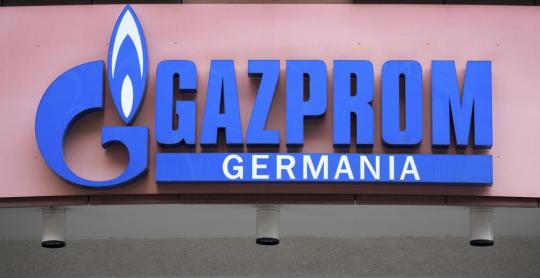
Prague (The Times Groupe)- Russian gas supplies to the European Union were cut again on Friday, including halving the supply to Italy and Slovakia, as countries sought to lessen their dependence on the Russian supply following the war in Ukraine.
This is the third day of significant fuel price reductions in Europe, which also include cuts in Germany and Austria. As a result, energy prices in the European Union are spiking further, leading to record inflation.
The Russian government has blamed a technical issue for the shutdown of the key Nord Stream 1 pipeline serving Germany and France, saying that equipment being refurbished in Canada was stuck there due to Western sanctions. Germany and Italy called the reductions a political move, and they have escalated energy tensions in Europe, after Russia cut off natural gas to Poland, Bulgaria, Finland, the Netherlands, and Denmark in the past.
Ukrainian President Volodymyr Zelenskyy said the reductions are “blackmail (against) both individual countries and Europe as a whole.”
SPP director Richard Prokypcak told a conference in Bratislava that Russia would reduce deliveries to Slovakia by 50%. The reason for the reduction is not clear.
Russian state energy giant Gazprom told Italian gas company Eni on the same day that it would provide only 50% of the gas requested for Friday, reducing the flow to one of Europe’s biggest importers of Russian gas for a third day.
Gazprom reduced Italy’s delivery request by 15% on Wednesday. ANSA reported that the Russian company dropped it by 35% on Thursday. 40% of Italy’s gas comes from Russia, but the country has been looking for alternative sources in countries such as Algeria.
France no longer receives natural gas from Russia. GRTGaz, a French gas network operator, said that Russian gas supplies via Germany have ceased following a 60% drop in the first five months of the year.
Despite the halt in Russian supplies, the operator said Friday that no disruptions in gas supplies are expected this summer, in part because more shipments are arriving through Spain. Russia provides about 17% of France’s natural gas, but gas is only about 16% of the country’s energy mix.
According to German Economy Ministry spokesman Stephan Gabriel Haufe, the cut in supplies to France was “the result of the already-known reduction” in supplies via the Nord Stream 1 pipeline. He did not know the specific reasons for the cut.
The Russian government says Canadian sanctions prevented Siemens Energy from delivering equipment that had been sent to be overhauled. According to the German government, maintenance shouldn’t have been a problem until the fall, and the Russian decision was intended to sow uncertainty and drive prices up.
“We and Germany are certain that it’s a lie, that there is a political use of gas by Russia,” Italian Premier Mario Draghi said on Thursday in Kyiv, Ukraine’s capital. European countries
#eu gas crisis#French gas network operator GRTGaz#gas crisis#Italian Premier Mario Draghi#natural gas exports to European countries#Nord Stream 1#Russia Ukraine War#Russian energy giant Gazprom#Russian gas supplies to the European Union#Sanctions On Russia#Stephan Gabriel Haufe#The Times Groupe#Times#Times Of Ocean#Ukrainian President Volodymyr Zelenskyy#Unravel News#Politics
0 notes
Text
European Commission wants to cut LNG purchases from Russia after halting gas transit through Ukraine
The European Commission intends to reduce purchases of Russian liquefied natural gas (LNG) after Russia’s pipeline gas transit through Ukraine stops on 31 December 2024.
European Commissioner for Energy Kadri Simson told reporters at an EU Council meeting:
We have to discuss the extension of measures to limit gas consumption and we will discuss the consequences of stopping the transit of Russian gas through Ukraine. I am also sure that we will have a good discussion on how we can further reduce the supply [to EU countries] of Russian liquefied natural gas.
Simson also emphasised that under the European Commission’s RePowerEU plan, EU countries are obliged to “completely phase out Russian gas by 2027”. The directive to ban Russian LNG supplies is planned to be introduced in April.
Read more HERE
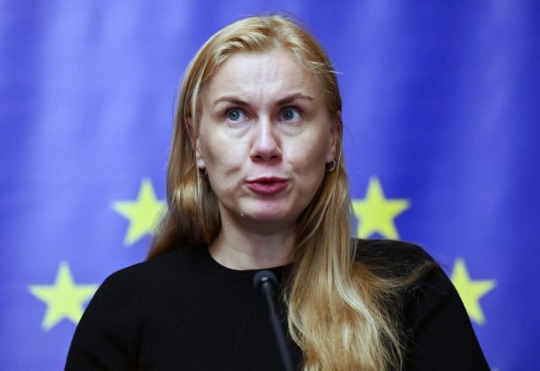
#world news#world politics#news#europe#european news#european union#eu politics#eu news#russia#russia news#russian news#lng#lng exports#oil#oil and gas#energy#natural gas#ukraine#ukraine war#ukraine conflict#ukraine news#ukraine russia news#ukraine russia conflict#russia ukraine war#russia ukraine conflict#russia ukraine crisis#russia ukraine today
0 notes
Text
Europe's Industry Collapse Is Here, Starting With Germany
So Germany is facing an energy crisis And this price shock might lead to the Industrialization so we know that Europe Is still suffering from high gas prices And in a shocking report we now have the Figures of how badly the German industry Is really hurting according to Alliance German Industries are set to pay 40 more For energy in 2023 than in 2021 and this Isn't good news especially when we…
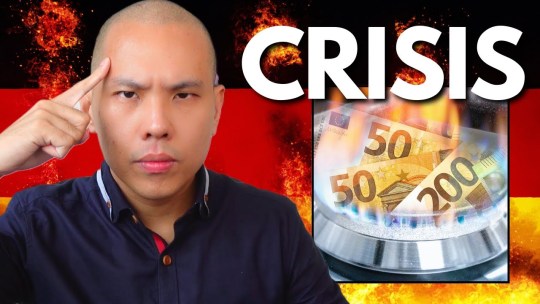
View On WordPress
#EU energy#EU energy crisis#EU rate hikes#eu recession#europe energy crisis#g7 price cap on russian oil#german industry#german industry collapse#germany deindustrialization#germany energy crisis#germany gas crisis#germany industry crisis#germany inflation#germany recession#germany recession 2023#inflation crisis#nord stream pipeline#putin gas war with europe#recession 2023#russia gas war#russia germany gas#sanctions on russia#sean foo#SHTF#SHTF 2023
1 note
·
View note
Video
youtube
Russia To Connect Nuclear Plant To Russian Grid. #zaporizhzhia #kherson ...
#youtube#Russia To Connect Nuclear Plant To Russian Grid. zaporizhzhia kherson energy gas eu poland norway europe Energoatom has said that Russia wi
0 notes
Text
HETALIA ☆ WORLD STARS (521)




Is there a problem/error? Please say so! And thank you for your support!
Spanish version ↓ and T/N.
T/N:
P.1.
"Cazzo", "f*ck!"
"Bastardo", "Bastard"
About Cost. (GDP; millions, aprox.)
Austria -> € 447 - $ 526 182
Netherlands -> € 941* - $ 1,092,748
Hungary -> € 188,443* - $ 203 829
Romania -> € 278,005* - $ 300,691
Bulgaria --> € 83,529 - $ 90,346
*not official, conversion ($ -> €)
P.2.
"Schengen Agreement" Overview, a kind of timeline.
"Conflict Bulgaria & Romania and Austria". Due to the increase in illegal inmigration and corruption in both countries, Austria had refused Bulgaria's entry many times.
"Schengen Area" because it was signed in Schengen, Luxembourg.
Another timeline! (2023)
Extract from Wikipedia: "On 8 December 2022 the Justice and Home Affairs Council voted to admit Croatia to the Schengen Area, but rejected Bulgaria and Romania. Austria and the Netherlands voted against the inclusion of Bulgaria and Romania, with Austria claiming that there had been a rapid increase in the number of migrants using the West Balkan route to enter the EU illegally. 20 On 30 December 2023 the EU agreed to include Bulgaria and Romania in the Schengen Area, with Austria no longer vetoing the enlargement of the area. Air and sea ports no longer conduct border checks from 31 March 2024, while the end of land border checks require further discussions."
"About Hungary & Bulgaria". If the information is correct, there was a "threat" from the Hungarian government to vote against Bulgaria's entry into the agreement if they didn't solve the Russian gas problem, yeah, taxes.
But they did it! Press realese, European Comission.
"Romanian Industry". Talks more about Poland and Romania's future struggles in the industry.
"Bulgaria, and 'rich kid' allegations" Probably talking about the Golden Age of Bulgaria, first Empire in the mid 19-century. Or the Second Golden Age. The Bizantine Empire and the Italian Kingdom had economic relationships with the first Bulgarian Empire.
P.3.
"Netherlands & Bulgaria". The Netherlands government was against Bulgaria and Romania's entry. And then not.
P.4.
"yправител" in Bulgarian. It might mean "general", "manager" or "administrator".
SPANISH VERSION
Italia habla de Bulgaria y Romania como si tuviera 80 años. Me saqué un 85% en mi examen de C2 de Español... no es una parodia por COMPLETO, pero tampoco lo tomen en serio.


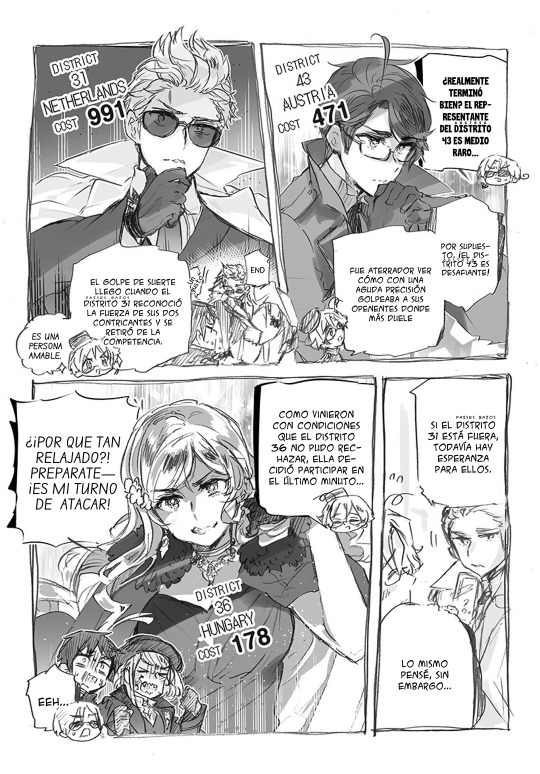

¿Hay un problema y/o error? Por favor de comunicar, ¡y gracias por su apoyo!
#hetalia world stars#japanese to english#hidekaz himaruya#hws italy#hws japan#hws germany#hws hungary#hws austria#hws bulgaria#hws romania#hws canada#hws netherlands#hws belgium#japonés a español
160 notes
·
View notes
Text
Tens of thousands of demonstrators have taken to the streets in Georgia in the South Caucasus in recent weeks to protest a controversial proposed new law that many fear, if passed, would be the death knell of a once-promising young democracy and drive the country firmly into Moscow’s orbit.
The “foreign agents” law would require organizations that receive more than 20 percent of their funding from abroad to register as “agents of foreign influence.” It is modeled on similar legislation that Russia enacted in 2012 and has used to cast independent media and civic society groups as doing the bidding of foreign governments and to crack down on dissent.
Georgia has been convulsed by bouts of street protests in recent years over the proposed law and other actions by the ruling Georgian Dream party that critics fear could consolidate its power and draw the country closer to neighboring Russia, a deeply unpopular move in the former Soviet nation where an overwhelming majority of the population supports joining the European Union, according to opinion polls.
Georgia was offered long-awaited EU candidate status by the bloc last year, which could be placed in jeopardy if the foreign agents legislation is adopted. In a statement last month, Brussels’s diplomatic service urged the country’s leaders to “adopt and implement reforms that are in line with the stated objective of joining the European Union, as supported by a large majority of Georgia’s citizens.”
On Thursday, Georgia’s ambassador to France resigned in protest over the proposed legislation, becoming the first senior official from the country to do so. “I no longer see my role and resources in this direction: the move towards Europe,” said Gotcha Javakhishvili in a post on social media.
The law was first introduced in February 2023 but was quickly withdrawn in the face of massive street protests in the capital, Tbilisi. It was then reintroduced in April of this year. Georgian President Salome Zourabichvili, who is independent of the Georgian Dream, has promised to veto the legislation if passed, but her veto would likely be overridden by the government’s parliamentary majority.
“It seems clear to me, anyway, they have made a decision to go the path of one-party rule, of shutting down basically all checks and balances on executive power, and this Russian law is the last instrument that they need to put in place,” said Ian Kelly, former U.S. ambassador to Georgia.
The protests this time around are markedly different from earlier iterations, though—but not because of the demonstrators or their demands. What makes the latest round of unrest different is the level of violence and intimidation meted out against protesters and civil society as well as the government’s apparent determination to pass the law, which is due for a final reading on May 13, despite the public outcry and condemnation from the European Union and the United States.
Security forces have used water cannons, rubber bullets, and tear gas in a bid to disperse crowds of demonstrators in the capital, Tbilisi, while protesters have reported being violently assaulted by groups of men dressed in black in what they say appear to be premeditated attacks.
In recent days, civil society activists, journalists, and their relatives have reported receiving menacing phone calls from anonymous callers threatening them in Georgian and reciting their home addresses in an apparent bid to intimidate them, said Eka Gigauri, executive director of Transparency International Georgia. Gigauri said she had received dozens of calls from unknown numbers in recent days but declined to answer them.
On Wednesday evening, four government critics, including two members of the United National Movement opposition party, were attacked by unknown assailants outside their homes and in the street. Overnight on Wednesday, posters featuring the faces of prominent civil society activists, journalists, and opposition politicians branding them as enemies of the country and foreign agents were plastered near their homes and offices across the capital.
“What happened during these two days is just an unprecedented level of targeting,” said Eto Buziashvili, a former advisor to the Georgian National Security Council based in Tbilisi.
In 2019, when police used water cannons, rubber bullets, and tear gas to disperse protesters, it sparked a national outcry and further protests calling for snap elections and the resignation of the interior minister, Giorgi Gakharia.
Now, accusations of more sinister tactics are afoot as the role of the unknown assailants dressed in black has drawn comparisons to pro-government thugs known as titushki who were allegedly paid for by the embattled government of Viktor Yanukovych to cause disruption and attack protesters during the Ukrainian revolution in 2014, Buziashvili said.
After a 2003 uprising known as the Rose Revolution, Georgia embarked on a dizzyingly ambitious reform program under the presidency of Mikheil Saakashvili, who was then a darling of Washington’s. He sought to stamp out corruption and put the country on a firmly Western trajectory, tilting it away from Moscow, which fought a short but shocking war with Georgia over the breakaway regions of South Ossetia and Abkhazia in 2008.
Saakashvili was imprisoned in 2021, accused of abusing power while in office. His supporters see the charges as politically motivated.
The Georgian Dream, established by the eccentric Georgian billionaire Bidzina Ivanishvili, came to power in 2012 promising a less confrontational approach to Moscow while paying lip service to the country’s aspirations to join NATO and the European Union.
Ivanishvili, who made his fortune in Moscow in the 1990s, served as prime minister for just over a year, stepping down in 2013, but has widely been viewed as the one still calling the shots behind the scenes as the Georgian Dream has undermined the country’s hard-won democratic gains and poured salt on the relationship with the United States.
“The person who seems to be driving all of this is Bidzina Ivanishvili,” said U.S. Sen. Jeanne Shaheen, a Democrat from New Hampshire who sits on the Senate Foreign Relations Committee, speaking about the foreign agents law.
In October, the Georgian government accused the United States Agency for International Development of trying to foment a coup in the country.
The Georgian government’s claims echo similar allegations made by Moscow over the years that have accused Washington of pulling the strings in a series of pro-democracy uprisings in the former Soviet Union known as color revolutions, including in Ukraine.
“I think it’s Russian disinformation. It’s a deliberate effort by Russia to stoke divisions in the country,” said Shaheen, who has a long-standing focus on Georgia.
On April 29, in a rare public address infused with conspiracy theories, Ivanishvili—who formally serves as the party’s honorary chairman—depicted the country as wrestling for its independence against shadowy, unnamed foreign forces, describing Georgia’s nongovernmental organizations as a “pseudo-elite nurtured by a foreign country.”
Although Ivanishvili’s personal wealth is equivalent to roughly a third of the country’s gross domestic product, he is “borrowing from the Orban and Trump playbook, highlighting how the urban elite is running counter to Georgian traditional values,” Kelly said, referring to Hungarian Prime Minister Viktor Orban and former U.S. President Donald Trump.
In March, a senior member of the Georgian Dream announced a raft of constitutional amendments cracking down on LGBT rights and banning any public efforts to promote same-sex relationships, echoing Russia’s “gay propaganda” law passed in 2013.
In the April speech, Ivanishvili explicitly referenced parliamentary elections set to be held later this year as a motivation for reintroducing the foreign agents law and the anti-LGBT legislation, noting that it would force civil society to “expend the energy” ahead of the vote, saying it would leave them “weakened” and “exhausted.”
Kelly criticized the Biden administration for not taking more concrete steps to deter Georgian politicians from pursuing the legislation. “Right after April 29, they should have started the first round of imposing costs, and the really easy one is, ‘You’re not welcome to get a visa,’” he said.
State Department spokesperson Matthew Miller condemned the violence against protesters on Thursday and called for a “full independent and timely investigation,” but Kelly said that such statements don’t go far enough.
“It’s useless. It’s worse than useless,” he said. “I don’t know if they really take us seriously.”
79 notes
·
View notes